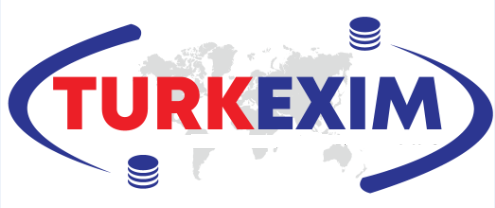PHARMACEUTICAL INDUSTRY | TÜRKİYE
PHARMACEUTICAL INDUSTRY IN TÜRKİYE
Production of pharmaceutical preparations done in pharmaceuticals laboratories between
1928 and 1950 had increased with the establishment of local and foreign invested plants
starting from the year 1952, which is the start of the “fabrication period” of the Turkish
pharmaceuticals industry.
Within the period after 1984 up to the present, investments of foreign capital companies
have increased and especially after the year 1990, 19 foreign capital firms have entered
into Turkish pharmaceuticals market.
Today, there are 53 manufacturing facilities and approximately 300 entities operating in
the sector in Turkey. 39 of the manufacturing facilities are local firms. On the other hand,
14 of the manufacturing facilities and 134 of the entities are owned by multinational firms.
Pharmaceutical industry has a production structure comprised of high level of technology
and automation. Approximately 25.000 people are employed in the sector.
Pharmaceuticals industry, due to its nature, is one of the industries which has a high
proportion of personnel with university education (50%).
Turkish pharmaceutical industry is mainly located in the Marmara Region especially in
provinces of Istanbul, Kocaeli and Tekirdağ. This is mainly due to the better infrastructure,
ease of supply in packaging materials and technical personnel, telecommunication and
transportation facilities and the existence of a high number of health institutions in the
region.
The Turkish pharmaceutical industry has a well-organized structure. Most of the
manufacturers and exporters have been organized under the roof of “The Pharmaceutical
Manufacturers Association of Turkey” (İlaç Endüstrisi İşverenler Sendikası).
PRODUCTION
Pharmaceutical production trends are closely related to domestic and foreign demand.
There were 7.413 pharmaceutical products on the market in 2009 out of which 4.928 were
prescribed products. In 2011, these numbers were changed to 7.823 pharmaceutical
products on the market out of which 5.264 were prescribed products.
In 2011, 64,3% of pharmaceuticals were local on Turkish pharmaceutical market. 21,7% of
these were reference and 78,3% were generics. In 2011, the market for prescribed
products has increased by 1,4% in value and became 14 billion US$. In terms of the drugs
in boxes, the prescribed market has increased to 1,56 billion boxes with an increase rate
of 9,1%.
In 2008, there were 1.350 hospitals in Turkey with a total bed capacity of 188.065. An
important new trend is receiving incoming patients from the European (mainly the United
Kingdom) or Middle East countries for treatment in Turkish private hospitals.
In 2011, Turkey ranked as 6th in Europe and 14th in the world with its pharmaceuticals
market which accounted for 10,4 billion US$. Turkey targets to be ranked as 10th biggest
country in the pharmaceuticals market. In terms of the number of Clinical Research
Centers, Turkey ranks as 34th in the world.
© Republic of Turkey – Ministry of Economy, 2012 3
Certain Turkish companies have started developing new products. İlsan İltaş has a sound
worldwide know-how and technology in pellet development and production. The company
has got process patents for omeprazol pellet production in Europe, Canada and South
Korea, and has also been granted FDA approval for the finished product. Another
company, Mustafa Nevzat plants have been approved for the API and finished dosage
forms by FDA. This is also a “first” for the Turkish Pharmaceutical Industry. Mustafa
Nevzat signed strategic partnership agreements with several leading US generic
companies for marketing and sales of its products.
Pharmaceutical consumption in Turkey, by therapeutic class, includes antibiotics,
cardiovasculars, antirheumatics, nervous systemics and oncologics.
The production of raw materials in Turkey concentrates on the active ingredients of
antibiotics and analgesics, by using the methods of fermentation, extraction and synthesis.
Within the Turkish pharmaceutical raw materials sector, 11 plants are owned by the private
sector.
The production and marketing of all pharmaceuticals in Turkey are obliged to be
authorized by the Turkish Ministry of Health, and pharmaceutical products and firms must
be registered in the Ministry.
The Turkish government has implemented a number of regulations to bring its
pharmaceutical laws into line with those in the EU.
Patent protection
Data exclusivity
Pricing
Registration
Good Manufacturing Practices(GMP)
Good Laboratory Practices (GLP)
Good Clinical Practices (GCP)
Bioavailability / Bioequivalency
Packaging Labelling
Promotion / Advertising
Drug Research and Medicinal Product Registration
Stability Requirements
Regulation on Good Distribution and Storage Practices
Pharmacovigilance
Since 1995, pharmaceutical manufacturers have to abide by regulations specifying Good
Manufacturing Practices (GMP), Good Laboratory Practices (GLP) and Good Clinical
Practices (GCP) requiring significant investment by local industry companies. The
necessary investments for the development of technology in the industry have been
accelerated and today the production technology of the Turkish pharmaceutical industry
has reached world standards.
© Republic of Turkey – Ministry of Economy, 2012 4
EXPORTS
Turkish exports have shown a steady increase in recent years. In 2011, the total value of
the pharmaceuticals exports reached US $ 620 million.
Turkey is now exporting various pharmaceutical products to 144 countries including
developed countries like Switzerland, Germany, the UK, the USA, Belgium and France.
USEFUL LINKS
Association of Research-Based Pharmaceutical Companies (AİFD)
www.aifd.org.tr/
Pharmaceutical Industry Association of Turkey (TISD)
www.tisd.org.tr/
Pharmaceutical Manufacturers’ Association of Turkey (IEIS)
www.ieis.org.tr
News Portal
www.habermedical.com/tag/arastirmaci-ilac-firmalari-dernegi
www.esdegerilac.com
Tags: pharmaceutical products, Turkish pharmaceutical products , buy pharmaceutical products from Turkey, import pharmaceutical products from Turkey
Yorumlar - Yorum Yaz












